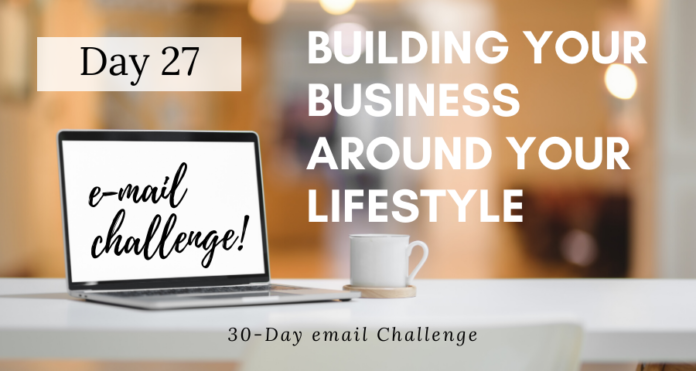If you have ever talked to people in an online business group and ask the question – “When will you retire?” – a lot of people will say they’ll never retire. That might be true. Maybe you love your work so much you cannot imagine leaving it or retiring.
However, you really cannot speak for the future in that way. You may feel the same in 10 or 20 years, but you may not. The best course of action any time there is an uncertain situation is to set up your business with a clear exit strategy, even if you’re just starting out and even if you may never want to quit.
Really Take Time to Consider Your Business Name
If you name your business after yourself, it may be difficult to sell it. Unless you know for sure you’re going to be the next Toni Robinson, it may not be a good idea to brand the business as yourself if you want it to live on long past your existence. Even for Toni, it might be hard for his company to keep going when he’s no longer around.
Brand Your Business Not Yourself
Regardless of what you call your business, it’s essential if you want to be able to sell the business that you brand the business and not yourself. Business branding will turn your business into a recognizable name outside of people knowing who you are. This makes it sellable.
Make Sure Everything is Legal
Set up your business as a legal entity to protect your name, your income, and your family. You’ll need to talk to a lawyer and a CPA about this to ensure you choose the right entity. Right now, it’s okay to be a sole proprietor, but you may want to investigate other protective entities and have a plan in place for when you will trigger the change. Plus, corporations tend to be sellable for more money than sole proprietorships.
Get Your Accounting Process in Order
One thing that can prevent people from wanting to invest in your business, much less buy it, is your accounting process. Hire a CPA to ensure that everything is set up right for tax purposes and totally separate from your personal income and finances. That means if you’re out and about and want to buy that cute dress, you should not use your PayPal card that you use for business to do it.
Keep Business Email Separate
Like you want to keep your money separate, also keep email separate. Don’t do business in your personal Gmail account if you want to brand your business properly. Set up @yourbusiness emails for yourself and only use those to communicate with anyone to do with business. Keep your Gmail account for personal communication.
Ensure Your Affiliate Accounts are in Your Business Name
When you set up your affiliate accounts, the accounts that allow you to promote someone else’s product or service, make sure you sign up using your business email and information. That way, the money earned is credited to your business, which will make the sales price a lot higher, and those accounts will be more easily transferred to the new owner – at least as much as the terms of service allow.
Keep Your Business and Personal PayPal, and Stripe Accounts Separate
This was mentioned, but it bears mentioning again. Do not use any accounts that you have for both business and personal expenses or income. As you get started, it’s okay to have a credit card in your own name or even a separate personal bank account that you only use for business – but don’t use that same card or account for personal purchases too. Instead, take an “owner’s draw” or pay yourself regularly from the business account to your personal account for personal expenses. Quickly get the right business accounts set up to prevent issues.
Ensure Your Shopping Cart and Software are Transferable Upon Sale
One thing some people may not realize with some of the technology they buy is that it’s not as easily transferrable as they think it is. When you buy any software, always read the fine print to make sure if you sell your business that you can transfer the account to the new business owner. By using business-related information and email, it should be much simpler.
When you consider that you could technically build a business that you can cash out of at some point and move on to something else if you ever get tired, it makes doing this work even more exciting. Doing the work to set up an almost self-running business that makes enough money to support your lifestyle while also giving you the freedom and then having a plan to exit that business at some later date is the ultimate in true retirement planning because you’re never stuck and can remain flexible.
Sign up NOW for Building Your Business Around Your Lifestyle 30-Day Challenge










